Cambodia’s Tonlé Sap Lake is running out of fish. Over the past decade, a devastating combination of climate change, illegal fishing and a dam construction spree on the Mekong River, has plunged the lake — and the tens of thousands of people who live on it — into crisis.
With your support, VSO is helping families who depend on the lake for their livelihood to find new sustainable ways of earning a living.
Meet Em
Em, his wife, and four children have lived in a floating village of Tonlé Sap Lake for many years. His family's livelihood relied entirely on fishing.
He says, "Several years ago, I started realising that the natural fish in the Tonlé Sap Lake seemed to have decreased from one day to another. I wasn't allowed to fish throughout the whole year anymore, but only for a few months. Later, in 2019, my family accepted an offer from the government to move to the mainland, for which we received compensation land of 12x100 metres."
Em adds, “Living on the mainland, I didn’t have the skills to get a regular job. Due to a lack of work opportunities in this area, one of my sons migrated to South Korea for work, and our family relied on him for income.”
With the money he saved from his son's support, Em set up a small vegetable farm and fish farm in late 2021. He had this idea after visiting his son in South Korea and learning new skills while visiting Korean farms.
It was a challenge for him. He shares, “At that time, I did not have any experience in fish or eel raising, and I did not have any technical skill in fingerling (small fish) selection, feed selection, breeding, water quality check, or disease management.”
Creating alternative livelihoods through aquaculture
In 2023, Em was introduced to a VSO project that was creating opportunities for local people to engage in aquaculture.
Aquaculture — the farming of aquatic organisms, such as eels, shellfish, and seaweed, in a controlled environment —helps to strengthen and improve the resilience of the local economy.
VSO works collaboratively with the Provincial Department of Agriculture, Forestry, and Fishery to provide training on aquacultural techniques such as setting up an eel farm, selecting eel fingerlings, checking the quality of water, feed processing, monitoring eel disease, and other technical practices.
Up until now, VSO volunteers have provided technical training to 345 eel, fish, and frog farmers in three provinces. Materials to help them to start their farm have also been provided.
Em is one of the farmers who received technical training on eel raising.
A new start for green businesses
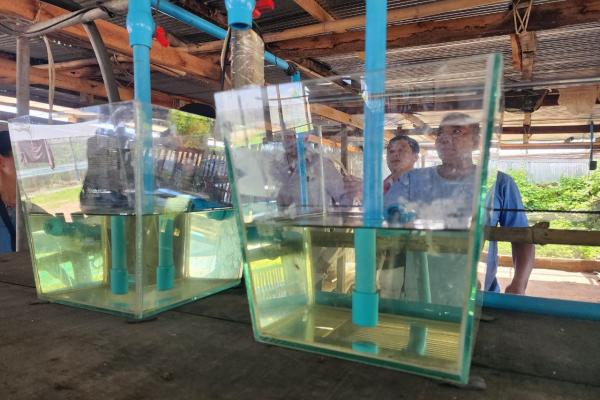
To support scaling up the eel-raising farm for Em, VSO has supported him to participate in the green economy’s business incubation programme. In this programme, potential start-ups and existing small or medium businesses are identified in the target communities. Then, selected participants receive training on green business development.
Participants are taught how each business affects the environment and how to prevent damaging natural resources. Participants are also supported to develop business plans and analyse each business's strengths, opportunities, and threats while building marketing strategies and managing costs and income.
This business incubation programme also provides a small grant to each business plan that reaches the criteria, with ongoing coaching and mentoring given to business owners.
Em was very happy to receive a grant through the green business pitching event. He recalls, “As I started my activity, I faced some challenges. One of them, the risk of electricity cuts, was particularly threatening, especially during the eel fingerling hatching process.
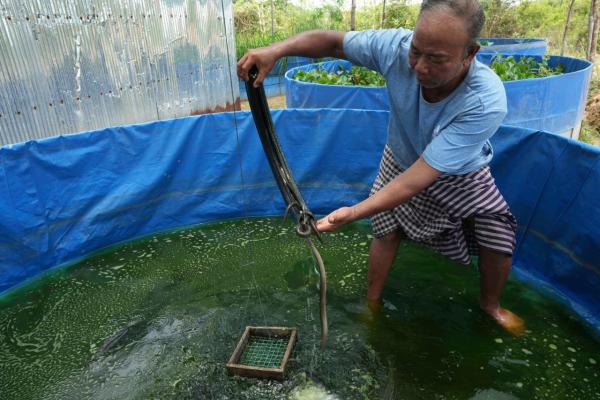
“Thankfully, with a $1,500 [£1,108] grant from VSO’s business incubation programme, I could install solar panels for my eel farm. This allows me to have a stable electricity supply which is essential when hatching eel fingerlings.”
Em smiles when he is asked about the progress of his eel farm. “I could see there is a substantial demand from the market in my community for eel products. Not only the eels but also the fingerlings. The production cost for raising the eels is low compared to other species, as we can use natural feed and — with the proper skills — the eels are easy to raise.
“I decided not to sell eels to the market yet, but I am using them for hatching fingerlings. I now have around 345 eels in my two tank ponds, which I can use to produce more than 5000 eel fingerlings. I plan to expand my farm by installing tank ponds with money gained from selling my eel fingerlings."
Sharing knowledge with the community
To ensure sustainability and ownership of the project within the community, farmer trainers have been introduced. With your support, VSO volunteers provide training to the selected farmer trainers so that they can share their knowledge with other farmers in their communities. Em was inspired to become a farmer trainer.
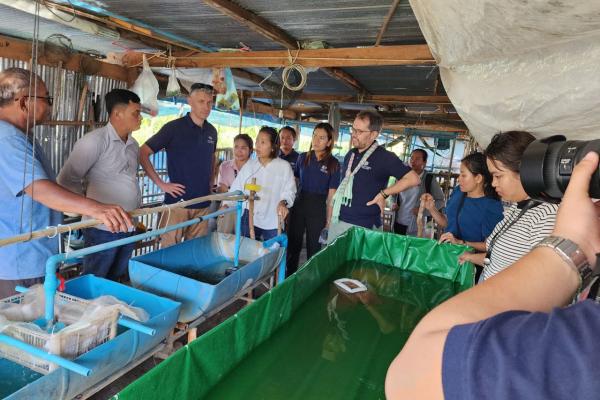
“I am happy to share all my skills with my community members and other farmers, especially the skill of selecting eel fingerling, eel fingerling hatching, feed processing, and how to take care of the eels and any other skills that I learned and experienced by myself," says Em.
He adds, “I would like to thank VSO for always supporting me with technical training and providing adequate input that helped me start up my eel farming business. I promise to take ownership of this eel farm and encourage all Cambodians to support our local products and apply our skills together, so we’re less reliant on importing products from other countries.
“Through this, I hope to help generate income opportunities within Cambodia and create enough work in our local area, so no one is forced to migrate for work.”
Generating Resilient Environments and Promoting Socio-Economic Development of the East Tonle Sap Lake (GREEN)
Those living on the shores of the Tonle Sap Lake in Cambodia depend on its resources for their income, yet climate change and overfishing are increasingly threatening their livelihoods.
The GREEN project has helped to boost incomes and create sustainable agriculture for these vulnerable communities, with 1,683 fishing communities' members being trained in alternative livelihoods.
Read more
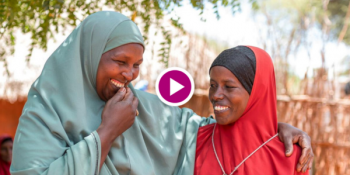
Video: What does peace mean to you?
Watch our video which spotlights the story of Galgalo and his family who are bearing the brunt of conflict and climate change and discover how you're helping them feel no longer powerless.
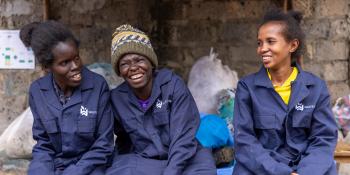
Keeping our commitments to communities, including women waste pickers
VSO’s funding has been reducing for a number of years, but now we are facing unprecedented pressures. In solidarity and with hope, your support means VSO can be there for more women waste pickers like Beth.
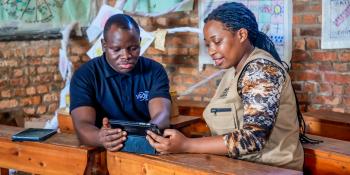
Using play to inspire learning in Rwanda
Learn how volunteers like Celestin are supporting children in Rwanda to learn through play. Children are taught problem solving, strategic thinking and inter-personal skills, all while enjoying the learning process.
